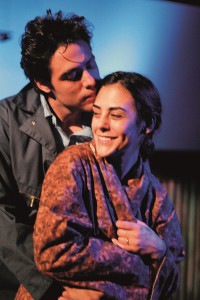LOS ANGELES: “Near my heart is a tribe of aliens.” Three years ago, this line sailed into playwright Diane Glancy’s mind, and it has since flowed into her latest creation, The Bird House, slated at Native Voices at the Autry National Center in Los Angeles through March 17.

Over her career, Glancy reports she has seen a progression in the themes of Native plays—from “good Indian, bad white man” stories, to the community assuming increased responsibility for its problems (which include alcoholism, poverty and abuse), to a third, more diverse stage, in which Native theatre no longer preaches but draws from the community at large to tackle pertinent issues. The Bird House belongs, she believes, to this third stage.
The play tackles a pair of social issues particularly resonant in underserved communities—the drilling practice known as fracking (which refers to the hydraulic fracturing of shale in order to access natural gas reserves) and religion.
The Bird House is frank about the economic advantages of fracking, but also voices grave concerns about the procedure’s environmental impact on coal emissions and water supply. As Native Voices co-founder and producing artistic director Randy Reinholz says, “We know we’re ruining the atmosphere—we’ve known about it for 50 years, but here we are now, ruining the tap water as well. That’s the holy grail of pollution. And it’s an allegory for Native issues.”
Glancy is careful to offer a complicated and unbiased depiction of the fracking controversy, which has gained public attention via the development of the Canadian “Idle No More” indigenous rights movement and the recent release of the anti-fracking film Promised Land. “Those things you’re afraid of, those things you don’t want to write about—they’re exactly what we should be dealing with,” the playwright believes.
As the lyricism and passion of The Bird House demonstrate, Glancy knows these aliens of the heart intimately. Audiences soon will, too.

